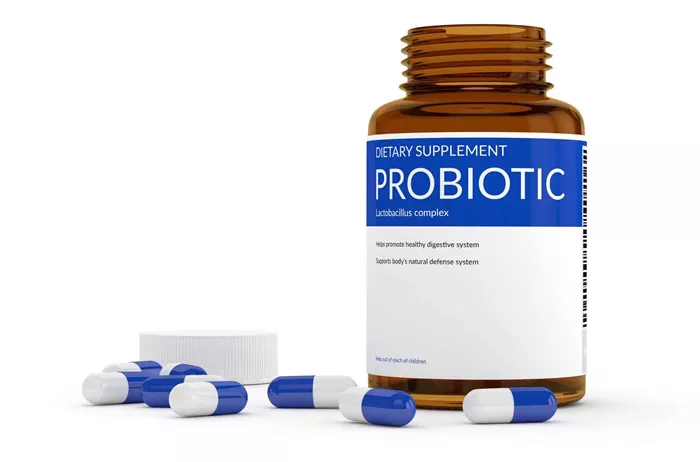Probiotic vitamins have gained significant attention in recent years for their potential health benefits. These supplements harness the power of beneficial bacteria to support digestive health, boost immunity, and even promote overall well-being. This article delves into the science behind probiotic vitamins, their potential uses, and the evidence supporting their efficacy.
Understanding Probiotics: Nature’s Beneficial Bacteria
The Gut Microbiome
The human gastrointestinal tract is home to trillions of microorganisms collectively known as the gut microbiome. This complex ecosystem plays a crucial role in digestion, nutrient absorption, immune function, and even mental health. Probiotics are live microorganisms that, when consumed in adequate amounts, confer health benefits on the host.
Common Types of Probiotic Bacteria
Probiotics come in various strains, with the most commonly studied being lactobacillus and bifidobacterium species. These bacteria are naturally found in fermented foods like yogurt, kefir, and sauerkraut, as well as in probiotic supplements.
Health Benefits of Probiotic Vitamins
Digestive Health Support
One of the primary benefits of probiotic vitamins is their ability to support digestive health. Probiotics help maintain a healthy balance of gut bacteria, which is crucial for optimal digestion and nutrient absorption. They can also alleviate symptoms of digestive disorders like irritable bowel syndrome (IBS), diarrhea, and constipation.
Immune System Boost
The gut microbiome plays a significant role in regulating the immune system. Probiotic vitamins can help strengthen the body’s natural defenses by promoting the growth of beneficial bacteria and modulating immune responses. This can result in reduced incidence and severity of infections, allergies, and autoimmune conditions.
Mental Health and Mood Enhancement
Emerging research suggests a link between the gut microbiome and mental health. Probiotic vitamins may help improve mood and reduce symptoms of anxiety and depression by influencing the production of neurotransmitters like serotonin and gamma-aminobutyric acid (GABA) in the gut.
Skin Health and Appearance
The health of the gut microbiome can also impact the skin. Probiotic vitamins may help improve conditions like acne, eczema, and psoriasis by reducing inflammation and enhancing the skin’s natural barrier function.
Evidence Supporting the Efficacy of Probiotic Vitamins
Clinical Trials and Research Findings
Numerous clinical trials have investigated the effects of probiotic vitamins on various health outcomes. While results can vary depending on factors like the specific strain and dosage used, overall, the evidence suggests that probiotics can be beneficial for digestive health, immune function, and other areas.
Meta-Analyses and Systematic Reviews
Meta-analyses and systematic reviews, which analyze data from multiple studies, provide further insights into the efficacy of probiotic vitamins. These analyses have found consistent evidence supporting the use of probiotics for conditions like antibiotic-associated diarrhea, inflammatory bowel disease (IBD), and allergic conditions.
Considerations When Choosing Probiotic Vitamins
Strain Diversity
Different probiotic strains may have distinct effects on health outcomes. When selecting a probiotic supplement, consider choosing one that contains multiple strains to maximize potential benefits.
Dosage and Potency
The effectiveness of probiotic vitamins can depend on the dosage and potency of the supplement. Look for products that provide an adequate number of live bacteria per serving, typically measured in colony-forming units (CFUs).
Quality and Purity
Choose probiotic vitamins from reputable brands that adhere to strict manufacturing standards and quality controls. Look for products that are free from unnecessary additives, fillers, and allergens.
Storage and Shelf Life
Probiotic bacteria are living organisms and can be sensitive to factors like heat, moisture, and light. Store probiotic vitamins according to the manufacturer’s instructions to maintain potency and efficacy.
Potential Side Effects and Precautions
While probiotic vitamins are generally considered safe for most people, they may cause mild gastrointestinal symptoms like bloating, gas, and diarrhea in some individuals, particularly when first starting supplementation. People with compromised immune systems or underlying health conditions should consult with a healthcare provider before taking probiotic supplements.
Conclusion: Harnessing the Benefits of Probiotic Vitamins
Probiotic vitamins offer a natural and effective way to support digestive health, boost immunity, and promote overall well-being. By restoring balance to the gut microbiome, these supplements can positively impact various aspects of health, from digestion and immunity to mental health and skin appearance. When choosing probiotic vitamins, consider factors like strain diversity, dosage, quality, and potential side effects to maximize their benefits. Incorporating probiotic vitamins into a healthy lifestyle can help optimize health and vitality, providing a foundation for long-term wellness.
[inline_related_posts title=”You Might Be Interested In” title_align=”left” style=”list” number=”6″ align=”none” ids=”8475,8390,8386″ by=”categories” orderby=”rand” order=”DESC” hide_thumb=”no” thumb_right=”no” views=”no” date=”yes” grid_columns=”2″ post_type=”” tax=””]































